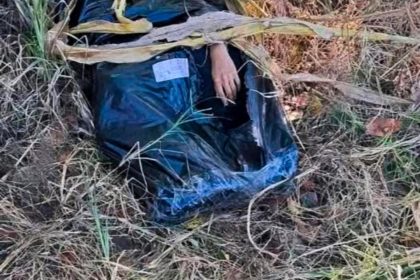From Routine Interrogation to Disturbing Mystery
What began as a routine interrogation in a Texas police station quickly spiraled into something far more unsettling. A suspect’s chilling words turned a straightforward case into a national mystery, raising questions about hidden networks, family safety, and the unseen forces operating beneath American society.
The spotlight shifted not because of the crime itself, but because of what 28-year-old Tyler Robinson revealed during questioning:
“If I tell the whole truth, they will come after my family… and everyone close to me.”
Detectives froze. Veteran investigator Marissa Cole described Robinson’s fear as unlike anything she’d ever seen—less about himself, more about protecting others.
What had appeared to be a personal dispute turned violent now seemed connected to something much larger. Investigators were forced to ask: Was Robinson acting alone, or under coercion? Were shadowy groups threatening his loved ones to keep him silent?
The case has since divided public opinion, drawn national media attention, and pushed experts to rethink what was once dismissed as an isolated act of violence. What began as simple questioning now points to the possibility of a broader, more dangerous conspiracy.
A Family Thrust Into Fear
Outside the station, the Robinson family faced a nightmare they never imagined. Shock over Tyler’s arrest turned into terror at the thought they too might be in danger from forces they didn’t understand. “My son is not perfect, but he’s not a monster,” his father, Daniel, told reporters, his voice breaking. “And now we’re scared—every knock at the door feels like a threat.”
The Robinsons had lived quiet, ordinary lives—his mother a teacher, his sister active in church. Now, Tyler’s words had thrust them into paranoia, questioning every stranger and fearing for their safety.
A Nation Divided
As the story spread, the country split. Supporters saw Tyler as a victim of powerful criminal networks, calling for federal protection under hashtags like #ProtectRobinson. Critics, however, dismissed his claims as a ploy to dodge accountability, branding his warnings “classic deflection.”
The debate reflected deeper American anxieties—distrust of institutions, fascination with hidden conspiracies, and uncertainty about where truth ends and manipulation begins.
Expert Analysis: Psychology and Criminology Weigh In
The unusual nature of Robinson’s testimony prompted immediate analysis from experts in psychology, criminology, and law enforcement. Their assessments have been as divided as public opinion, with professionals reaching vastly different conclusions about the credibility and implications of Robinson’s claims.





